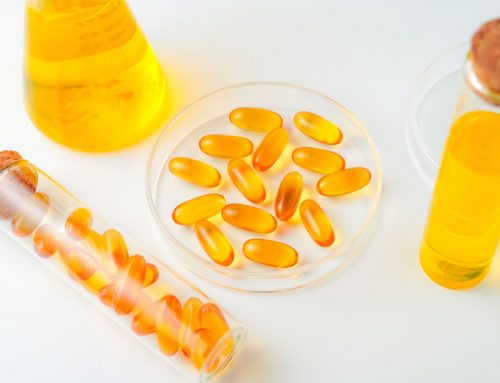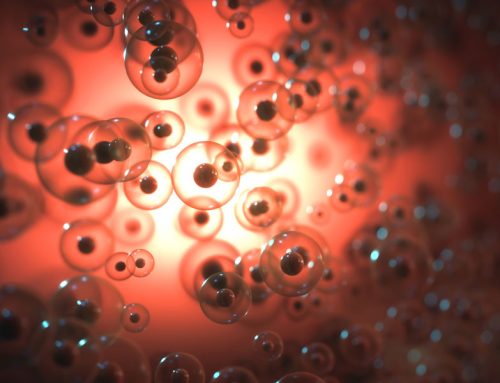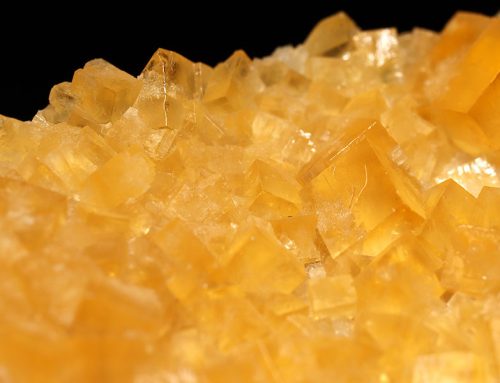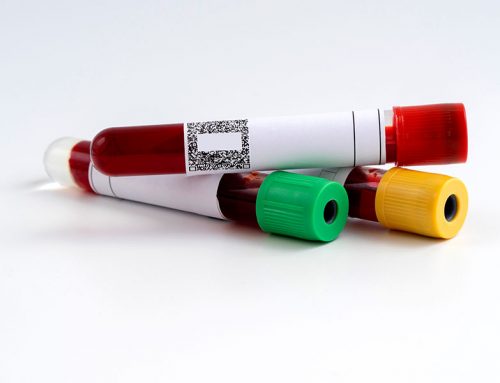
Professor Guillermo López-Lluch listens to a comment from professor emeritus Gian Paolo Littarru at the 9th conference of the International Coenzyme Q10 Association in New York, June 24, 2018.
Arguably, the most exciting Coenzyme Q10 research results of 2018 are the results of a comparative bio-availability study done at the Pablo de Olavide University in Sevilla, Spain. The researchers’ carefully designed study demonstrates that the uptake of Coenzyme Q10 from oral supplements depends primarily on two factors [López-Lluch 2018]:
***The composition and formulation of the supplement, especially the types of substances used to dissolve the Coenzyme Q10 raw material in the supplement capsules
***The bio-chemical capacity to absorb oral Coenzyme Q10, which varies considerably from individual to individual
Absorption of Coenzyme Q10 a complex matter
Coenzyme Q10 absorption and bio-availability is a complex matter to investigate.
The formulation of the Coenzyme Q10 supplements on the market in the USA varies greatly. Despite what marketers may tell you, the formulation of the Coenzyme Q10 supplement is the single most important factor for absorption and bio-availability, even more important than the form of the supplement.
What do I mean by that, formulation is more important than form? Coenzyme Q10 supplements are available in two forms, basically. Consumers choose between these two forms:
***The oxidized form, ubiquinone, the more stable form that has documented absorption and effectiveness and safety all the way back to the 1980s
***The reduced form, ubiquinol, first introduced commercially in 2007, and known to be less stable and less documented
López-Lluch study of Coenzyme Q10 bio-availability
The López-Lluch study done in Sevilla shows that a well-formulated ubiquinone Coenzyme Q10 supplement will achieve a 1.7 times better absorption and bio-availability than a well-formulated ubiquinol supplement [López-Lluch 2018].
At the same time, the López-Lluch comparative study shows that a well-formulated ubiquinol supplement will be absorbed better than a less well-formulated ubiquinone Coenzyme Q10 supplement. The study done in Sevilla shows that certain factors in the formulation of the Coenzyme Q10 supplement are decisive for good absorption and good bio-availability [López-Lluch 2018]:
*** The choice of the oils in which the Coenzyme Q10 is dissolved is particularly important to good absorption and bio-availability.
*** The use of a specific heating/cooling procedure to prevent the re-crystallization of the Coenzyme Q10 inside the soft-gel capsule is important.
*** The presence of antioxidants in the Coenzyme Q10 supplement formulation may impede absorption and bio-availability of the Coenzyme Q10.

Dr. William Judy, founder and president of SIBR Research, has done lab studies and animal studies that show that ubiquinol, the reduced form of Coenzyme Q10, when taken orally, is highly unstable in the contents of the stomach and duodenum and is converted to ubiquinone, the oxidized form of Coenzyme Q10, before absorption.
*** A higher surface area to volume ratio is said to be important to improve absorption and bio-availability. However, Dr. William Judy, SIBR Research Institute, warns me that it is not practically possible to grind the Coenzyme Q10 crystals down to a particle size that will permit absorption. The crystals have to be dissociated into single molecules for absorption to be possible.
Note: It may be that Dr. López-Lluch is referring not to the grinding down of the Coenzyme Q10 crystals but rather to the formation of a different shape of the Coenzyme Q10 crystals with the new crystal shape giving a greater surface area to volume ratio.
Documented health benefits of the ubiquinone Coenzyme Q10 supplement
By the way, the well-formulated ubiquinone Coenzyme Q10 supplement used in the López-Lluch study is the same supplement shown to give significant health benefits in randomized controlled trials:
Mortensen [2014]: Supplementation with 300 milligrams of the ubiquinone Coenzyme Q10 daily for two years significantly improved the symptoms and survival of chronic heart failure patients in the Q-Symbio study.
Alehagen [2013]: Supplementation daily with 200 milligrams of the ubiquinone Coenzyme Q10 supplement in combination with 200 micrograms of a high-selenium yeast preparation significantly reduced the risk of death from heart disease, maintained better heart function, and reduced the levels of oxidative stress and inflammation in health elderly volunteers in the KiSel-10 study.
Golomb [2013]: Daily supplementation with 100 milligrams of the ubiquinone Coenzyme Q10 supplement for 3.5 months significantly improved physical function and symptoms in veterans with Gulf War illness.
Considerable variability in Coenzyme Q10 absorption from individual to individual
The López-Lluch study showed that the uptake of Coenzyme Q10 from supplements strongly depends on the individual person. There could be many differences from individual to individual to explain the variation in absorption:
*** Differences in individual capacity to absorb fats from the diet
*** Differences in the metabolic capacity of each individual’s enterocytes (= cells in the lining of the intestines)
*** Differences in lifestyles and diets
*** Differences in body mass index
*** Differences in gender
*** Differences in age
Because of the individual variability, the design of absorption studies is of great importance if the researchers are to reach a reliable result.
Coenzyme Q10 absorption claims
For some time now, I have been bothered by the lack of documentation for marketing claims for the absorption of ubiquinol products. These claims have taken the following forms:
*** Claim: Ubiquinol is better absorbed than ubiquinone Coenzyme Q10. Actually, this claim has never been documented in well-designed studies and is not necessarily true according to the results of the López-Lluch study. Much depends on the formulation of the supplements being tested.
*** Claim: Oral ubiquinol supplementation is necessary to get the antioxidant form of Coenzyme Q10. Actually, the ubiquinone in the ubiquinone Coenzyme Q10 supplements will be converted to ubiquinol when it enters the lymph. A better absorbed ubiquinone Coenzyme Q10 supplement will give more ubiquinol in the lymph and the blood than a less well absorbed ubiquinol supplement. No worries.
*** Claim: People over the age of 40 need to take Coenzyme Q10 in the ubiquinol form. We have not seen any human studies to demonstrate that this is the case. The López-Lluch study does not help us respond to this claim because all of the study participants were under the age of 40.
The bottom line on the López-Lluch study
Where do the results of López-Lluch study leave us? My take is that I still do not see any convincing reason to take an overpriced ubiquinol supplement with very limited documentation when a well-absorbed and evidence-based Ubiquinone product is available.
Dr. William Judy attended the conference in New York and listened to Dr. López-Lluch’s presentation. Dr. Judy said, you can take a well-formulated oral ubiquinone Coenzyme Q10 supplement and get all the ubiquinol you need. The ubiquinone is more stable, and the ubiquinone that gets absorbed will be converted in the lymph to the ubiquinol form of Coenzyme Q10, which is the antioxidant form that you need in the lymph and in the blood.
Dr. Judy’s research shows that the ubiquinol from an oral ubiquinol supplement is oxidized by the time it reaches the point of absorption in the intestine anyway. So what would be the point of taking a ubiquinol supplement?
Sources
Alehagen, U., Johansson, P., Björnstedt, M., Rosén, A., & Dahlström, U. (2013). Cardiovascular mortality and N-terminal-proBNP reduced after combined selenium and Coenzyme Q10 supplementation: a 5-year prospective randomized double-blind placebo-controlled trial among elderly Swedish citizens. International Journal of Cardiology, 167(5), 1860-1866. doi:10.1016/j.ijcard.2012.04.156
Golomb, B. CoQ10 and gulf war illness. Neural Computation 2014 Nov; Vol. 26 (11), pp. 2594-651
López-Lluch, G., Del Pozo-Cruz, J., Sánchez-Cuesta, A., Cortés-Rodríguez, A. B., & Navas, P. (2019). Bioavailability of coenzyme Q10 supplements depends on carrier lipids and solubilization. Nutrition, 57, 133–140
Mortensen, S. A., Rosenfeldt, F., Kumar, A., Dolliner, P., Filipiak, K. J., Pella, D., & Littarru, G. P. (2014). The effect of coenzyme Q10 on morbidity and mortality in chronic heart failure: results from Q-SYMBIO: a randomized double-blind trial. JACC. Heart Failure, 2(6), 641-649. doi:10.1016/j.jchf.2014.06.008
The information provided in this review article in not intended as medical advice and should not be used as such.









Leave A Comment